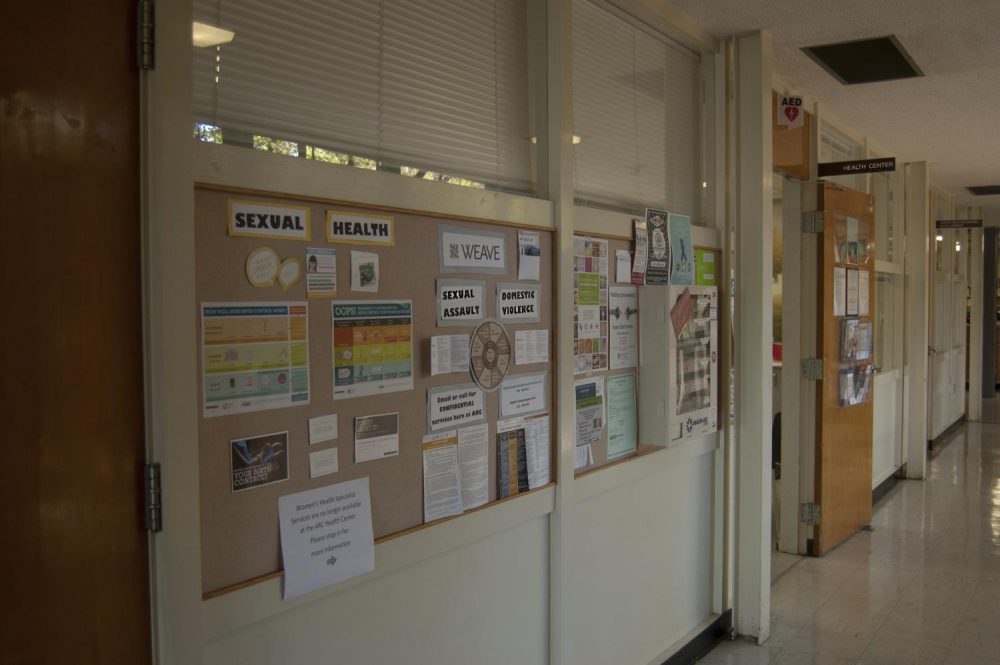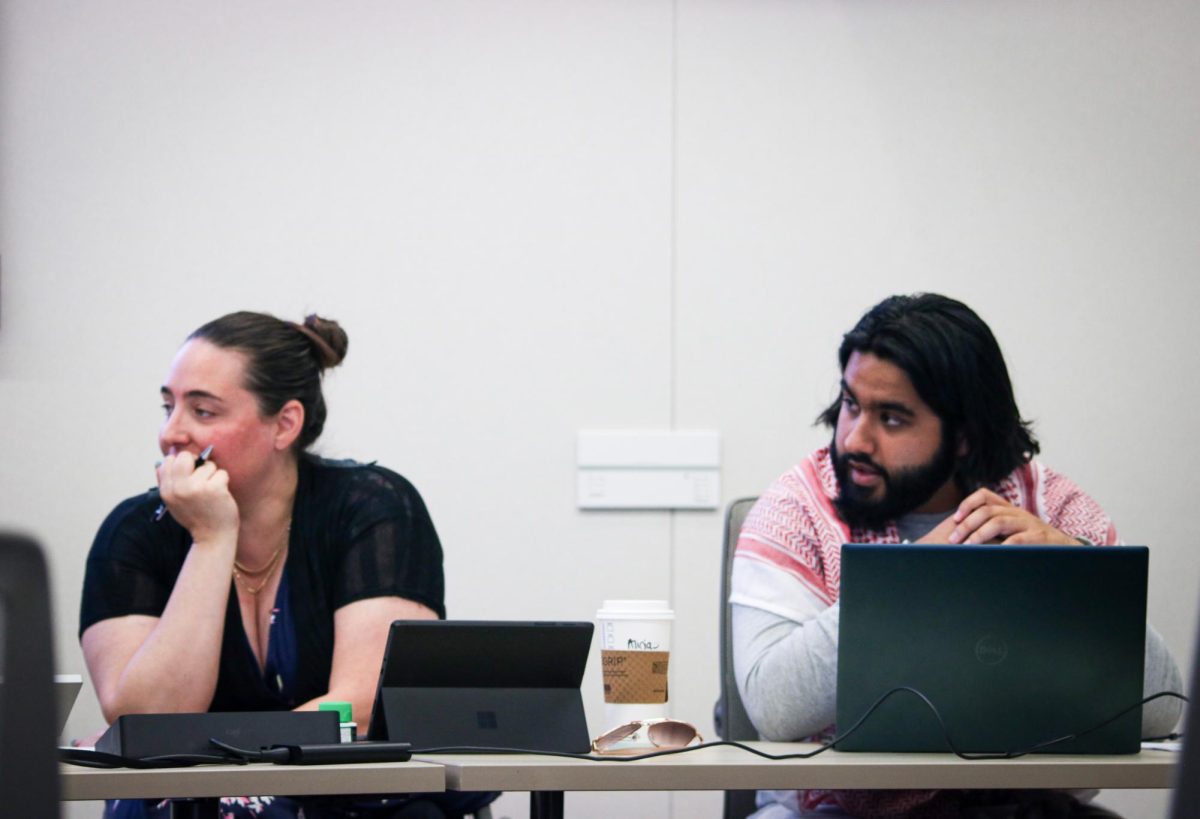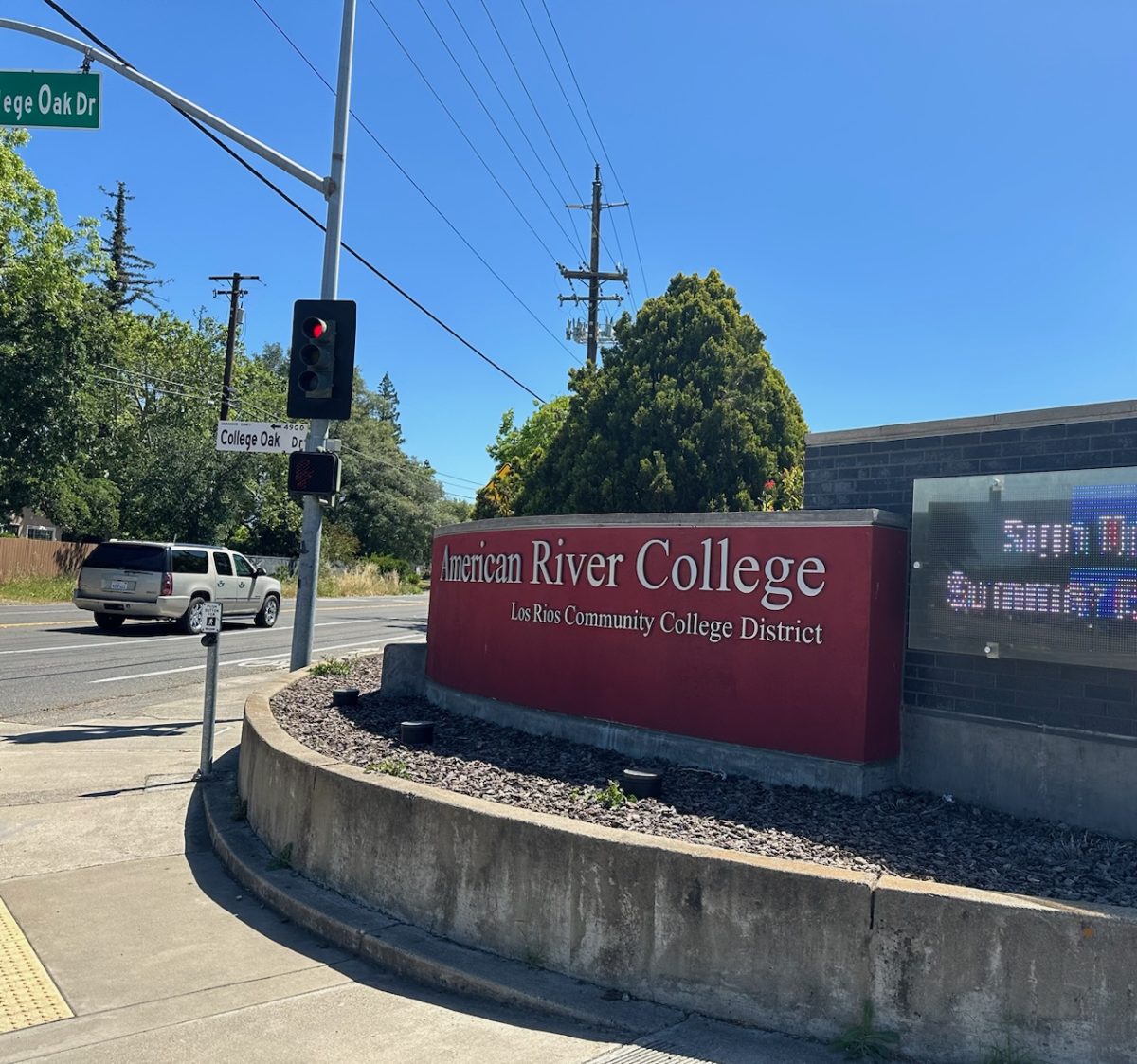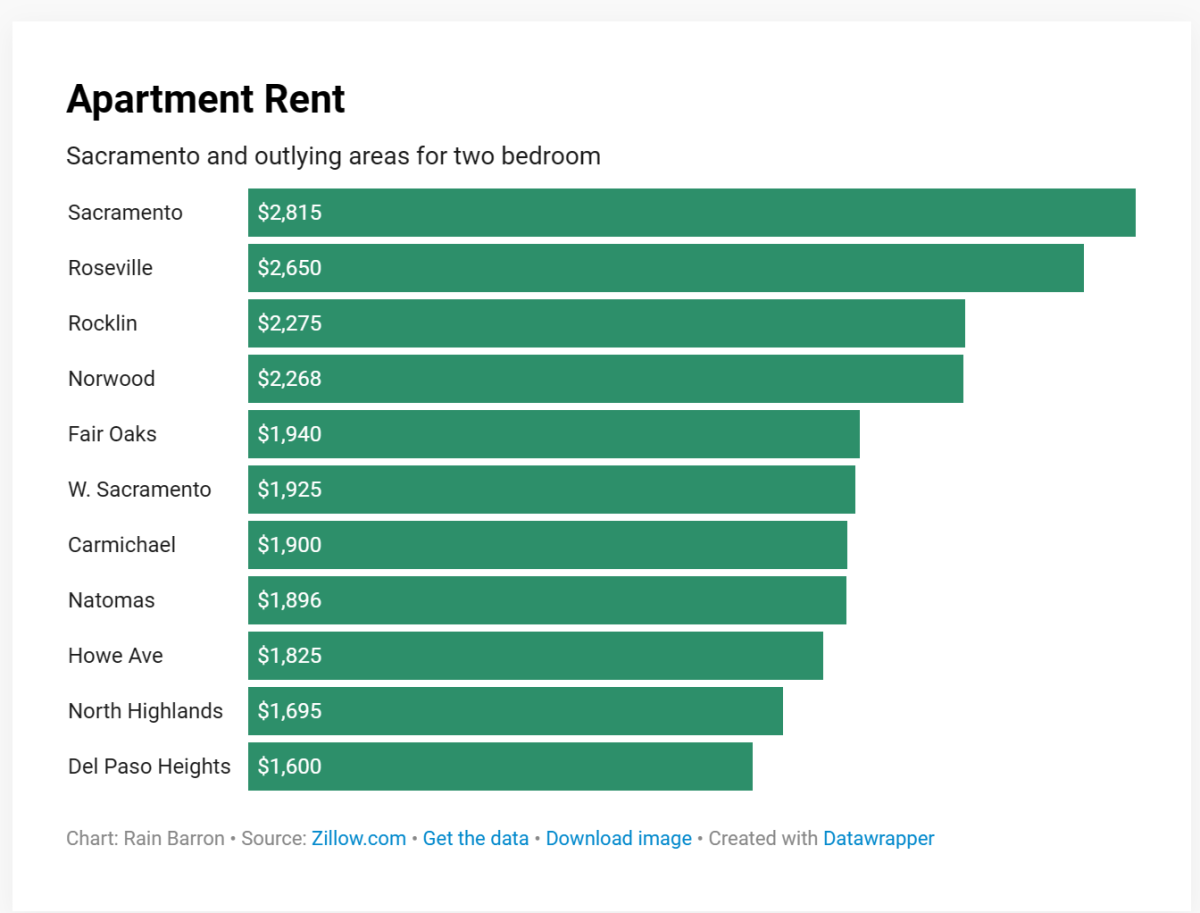Deep in the Administration Building on the American River College campus lies the Health Center. It is a little room across from a barely used courtyard.
The Health Center is designed to be a safe place for students to go with any health care concerns. The walls are blue and a lone man sits at the information desk. Outside the door is a bulletin board. Bold letters are stapled to it spelling out the words ‘Sexual Assault’ and ‘Domestic Violence’. Between them is a graph to help distinguish the difference between the two phrases.
Below that, tacked to the corner of the bulletin board is a hand out, about the size of a half sheet of paper entitled “Your Choices For Help”. In the case that a student has been a victim of sexual violence on the ARC (or any Los Rios) campus, students have three options outlined in well-structured columns; a member of the campus may call the Los Rios Police Department, the Title IX Officer, or for a more confidential approach, they can get in contact with the WEAVE Confidential Advocate.
These options have been presented because of Title IX, and although the services have been inconsistent in the past, ARC endeavors to provide multiple options for its students if they are ever faced with such an incident.
Title IX of the Educational Amendment Act of 1972 is a federal law stating “No person in the United States shall, on the basis of sex, be excluded from participation in, be denied the benefits of, or be subjected to discrimination under any education program or activity receiving Federal financial assistance.”
But ever since Education Secretary Betsy DeVos’s statement Thursday September 7, in which she expressed that the system put in place by the previous administration has “failed,” it’s brought up concerns for current students.
ARC’s vision statement, which can be found on the college’s website, expresses its dedication to the health and well-being of its students. It states, “We are committed to equality and social justice through equality-minded education, transformative leadership, and community engagement.”
“Sexual violence and harassment are not tolerated and are prohibited by law and District Policy. We follow Title IX and all guidelines that support such a safe, discrimination-free campus community,” ARC President Thomas Greene said, in a statement to the Current.
In 2011, under the Obama administration the “Dear Colleague Letter” (DCL), was published as a Title IX Guidance; while not an actual law it did expand on what a school’s obligations were in addressing campus sexual violence.
One such obligation is that the school must provide an avenue for students to file complaints of sexual discrimination, this includes sexual violence. In the procedures, it must include equal opportunities for both parties; be it presenting witnesses, or additional evidence
“Here is what I’ve learned: the truth is that the system established by the prior administration has failed too many students,” DeVos said in her Sept. 7 speech. “Washington has burdened schools with increasingly elaborate and confusing guidelines that even lawyers find difficult to understand and navigate.”
DeVos then asked, “Where does that leave institutions, which are forced to be judge and jury?”
This is not a statement that is agreed upon by everyone in an administration position.
“As an institution we’re not lawyers, we’re not police officers, so I think our position is impartial.” said Parrish Geary, Dean of Student Services and Admissions & Transition Services at ARC.
“I think we are just looking to provide a resource for the proclaimed victim and then at the same time if the accused is willing to seek assistance [provide assistance to them as well] I think the educational system will provide that for them as well,” Geary said
Beyond only providing assistance to students, Geary explained that faculty and staff serve an important role in cases of possible sexual assault.
“Everybody on this campus that is a staff or faculty member, we’re for the most part a mandated reporter,” Geary said. This means essentially that if any of the aforementioned people are informed of a sexual assault they are required to inform the authorities.”
DeVos said part of how the system fails is that it “turns a survivor into a victim,” by forcing them into specific action or reporting.
Geary said that students have other options.
“However, we have WEAVE now on campus, that you can go to, talk out your concerns…where you can get more assistance.” Geary continued. Because WEAVE is completely confidential it is not mandatory that they report the incident, but rather offer support and advice on a community level. WEAVE is also willing to provide services and counsel for both parties involved.
ARC has gone through three outreach services in the past few years. First was Planned Parenthood, who left for indeterminable reason. Following Planned Parenthood there was a period where there was no reproductive services.
“For several semesters, a community agency, Women’s Health Specialists, provided health services on campus for ARC students. As a result of the agency losing funding, they had to close some of their clinics and discontinue services at ARC,” Greene said. As of March 2017, all Women’s Health Specialists locations in Sacramento had closed.
ARC is partnered with WEAVE; a representative is available on campus Wednesdays from 9 a.m. to 3 p.m.














